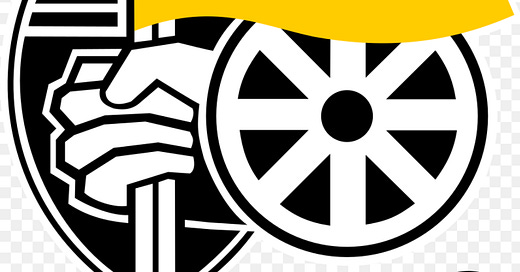South Africa will vote tomorrow. It is leading a crusade for righteousness before the International Court of Justice, so you’d have thought it’s in pretty fair shape internally?
“The national mood is grim owing to some of the world’s highest rates of unemployment and inequality, power cuts, water shortages and violent crime. Younger generations do not feel the same gratitude and loyalty to the ANC as many of their parents and grandparents do, for leading the successful fight for multi-racial democracy” (The Guardian).
After all this time, South Africa still has one of the highest rates of inequality—you’d hardly credit it?
What use is democracy, and what use is fighting to achieve it, with blood, sweat and tears, if, once you’ve got it, or whatever it is that you want to call democracy, you don’t do anything constructive with it? Well, democracy—even if it’s imperfect—has its definite uses. Democracy is actually easy to achieve, especially since the American Founding Fathers laid down a blueprint that is supposedly so water-tight. It’s certainly much easier than governing whilst forcing a naked blade against everyone’s throats.
Except, democracy doesn’t obviate the naked blades: it just means you don’t need so much force to hold them against people’s throats, because they agreed that you could place them there. The in-built mechanism of acquiescence that forms such a cornerstone of democracy (i.e. admitting you’ve lost, when you lose) is, as Mr Trump has graphically demonstrated, not only a sign of weakness but actually does open up a chink in your armour. Admitting weakness is saying, “I admit that I have a chink in my armour,” and, if you do that, don’t be surprised if somebody rams a halberd through it—not everyone’s as acquiescent as you are. Correction—no one is as acquiescent as you are.
The 1967 comedy film A Guide For The Married Man includes the scene below, which evokes the kind of reaction akin to when someone inhales smoke and blows it out through his ears: I know it’s real, but how does he do that?
In the scene in question, a man’s wife returns home to discover him in bed with another woman. During the following dialogue between the wife and her man, he and his floozie methodically get up from the bed, get dressed, make the bed and, in the end, leave the room.
[Exclaim of surprise from wife.] Charlie!
What?
What are you doing?
Where?
There, with her!
Who?
Her! How could you?
What?
[Indicates bed.] That!
When?
When I came in, you and she were …
Who?
You know very well who, that, that woman there!
Where?
Charlie! You and that woman!
[Paramour leaves.] What woman?
The one who just left!
When?
[Husband leaves bedroom. Wife is flummoxed—as intended.]
[Wife follows husband into living room.] But, Charlie, aren’t you even ashamed of yourself?
[Lights his pipe] Why?
Why should he be ashamed? What did shame ever achieve?
Here lived the great self-flagellator, Henry Benkins, who was a paragon of shame?
This monument is dedicated to the memory of the gallant men of the 42nd who knew true shame in the face of adversity?
“First class honours, y’know, Balliol College of course. Majored in shame.”
When you have your adversary at a disadvantage, such that, whether figuratively or literally, you have that naked blade up against their throat, all that shame does is put the blade in the other guy’s hand. And what will poor Robin do then?
What the African National Congress achieved in South Africa was truth and reconciliation. A process by which bygones became bygones, and by which the blade was handed to a new owner.
Aside from that, democracy is an ideal whose achievement is to open up the pathway to what, it has to be conceded, autocracy and dictatorship will also open the way to: personal riches.
South Africans are going to the polls tomorrow to decide who will be next to get rich quick. One thing’s for sure: it won’t be South Africa’s poor.
African National Congress logo: By http://www.anc.org.za/sites/default/files/docs/lge-manifestou.pdf, Fair use, https://en.wikipedia.org/w/index.php?curid=47523396.



